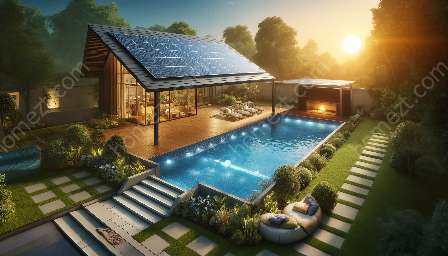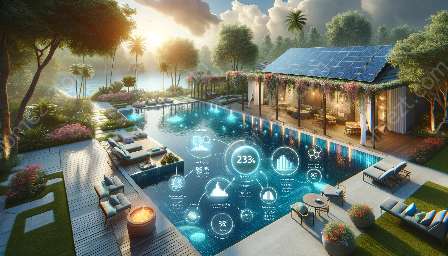As a pool owner, you may be concerned about the costs associated with heating your pool. Whether it's an inground or above-ground pool, understanding the expenses involved in pool heating is essential to make informed decisions. This guide will delve into various pool heating options, factors impacting costs, and efficient solutions for ensuring your swimming pool is comfortably warm.
Factors Affecting Pool Heating Costs
When considering pool heating costs, several factors come into play, influencing the overall expenses involved:
- Climate: The climate in your area significantly impacts the amount of heat required to maintain an optimal pool temperature. Colder climates may necessitate more energy for heating, subsequently increasing costs.
- Pool Size: The size of your pool directly affects the amount of water that needs to be heated. Larger pools generally require more heating, leading to higher costs.
- Heating Method: The choice of heating method, such as solar, electric, gas, or heat pump, has a substantial impact on the overall pool heating costs. Each method comes with its own installation and operational expenses.
- Insulation: Proper insulation of the pool and its surroundings can significantly reduce heat loss and, consequently, the energy required for heating, thereby impacting costs.
- Usage Patterns: The frequency and duration of pool usage also play a role in determining heating costs. Regular and prolonged use may lead to higher energy consumption and, consequently, increased expenses.
Types of Pool Heating Systems
There are various pool heating systems available, each with its own set of costs and benefits:
Solar Pool Heating
Utilizing solar energy to heat your pool is an eco-friendly and cost-effective option in the long run. While the initial installation costs may be relatively high, solar pool heating can significantly reduce operational expenses in the long term due to minimal energy consumption.
Electric Pool Heaters
Electric pool heaters are relatively straightforward and provide consistent heating. However, they tend to have higher operational costs compared to other heating methods due to electricity rates.
Gas Pool Heaters
Gas pool heaters are known for their quick heating capability, making them ideal for on-demand heating. However, their operational costs can be higher, especially with fluctuating gas prices.
Heat Pumps
Heat pumps are known for their energy efficiency, making them a cost-effective solution for heating pools. While the initial investment may be higher, their lower operational costs and environmental friendliness make them an attractive long-term option.
Cost-Effective Pool Heating Solutions
To effectively manage pool heating costs, consider implementing the following strategies:
- Optimize Solar Heating: Maximize the use of solar energy by investing in high-quality solar panels and ensuring proper placement for optimal sunlight exposure.
- Energy-Efficient Equipment: Upgrade to energy-efficient pool heating equipment, such as heat pumps or solar heating systems, to reduce operational expenses in the long run.
- Proper Maintenance: Regular maintenance of pool heating systems, including cleaning filters and checking for leaks, can enhance efficiency and minimize energy wastage, contributing to cost savings.
- Smart Heating Usage: Schedule heating cycles to align with pool usage patterns, toggling the system off when the pool is not in use to conserve energy and reduce costs.
Conclusion
Understanding the factors influencing pool heating costs and exploring cost-effective solutions is crucial for maintaining a warm and enjoyable swimming pool while effectively managing expenses. By considering various heating methods, optimizing energy efficiency, and implementing smart usage practices, you can ensure that your pool remains comfortably warm throughout the year without breaking the bank.















